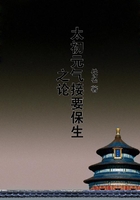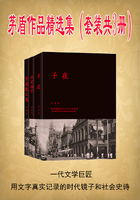Indeed one of the strongest reasons for believing that Francis was Junius is the moral resemblance between the two men. It is not difficult, from the letters which, under various signatures, are known to have been written by Junius, and from his dealings with Woodfall and others, to form a tolerably correct notion of his character. He was clearly a man not destitute of real patriotism and magnanimity, a man whose vices were not of a sordid kind. But he must also have been a man in the highest degree arrogant and insolent, a man prone to malevolence, and prone to the error of mistaking his malevolence for public virtue. "Doest thou well to be angry?" was the question asked in old time of the Hebrew prophet. And he answered, "I do well."
This was evidently the temper of Junius; and to this cause we attribute the savage cruelty which disgraces several of his letters. No man is so merciless as he who, under a strong self-delusion, confounds his antipathies with his duties. It may be added that Junius, though allied with the democratic party by common enmities, was the very opposite of a democratic politician. While attacking individuals with a ferocity which perpetually violated all the laws of literary warfare, he regarded the most defective parts of old institutions with a respect amounting to pedantry, pleaded the cause of Old Sarum with fervour, and contemptuously told the capitalists of Manchester and Leeds that, if they wanted votes, they might buy land and become freeholders of Lancashire and Yorkshire. All this, we believe, might stand, with scarcely any change, for a character of Philip Francis.
It is not strange that the great anonymous writer should have been willing at that time to leave the country which had been so powerfully stirred by his eloquence. Everything had gone against him. That party which he clearly preferred to every other, the party of George Grenville, had been scattered by the death of its chief; and Lord Suffolk had led the greater part of it over to the ministerial benches. The ferment produced by the Middlesex election had gone down. Every faction must have been alike an object of aversion to Junius. His opinions on domestic affairs separated him from the Ministry; his opinions on colonial affairs from the Opposition. Under such circumstances, he had thrown down his pen in misanthropical despair. His farewell letter to Woodfall bears date the nineteenth of January, 1773. In that letter, he declared that he must be an idiot to write again; that he had meant well by the cause and the public; that both were given up; that there were not ten men who would act steadily together on any question. "But it is all alike," he added, "vile and contemptible. You have never flinched that I know of; and I shall always rejoice to hear of your prosperity." These were the last words of Junius. In a year from that time, Philip Francis was on his voyage to Bengal.
With the three new Councillors came out the judges of the Supreme Court. The chief justice was Sir Elijah Impey. He was an old acquaintance of Hastings; and it is probable that the Governor-General, if he had searched through all the inns of court, could not have found an equally serviceable tool. But the members of Council were by no means in an obsequious mood. Hastings greatly disliked the new form of government, and had no very high opinion of his coadjutors. They had heard of this, and were disposed to be suspicious and punctilious. When men are in such a frame of mind, any trifle is sufficient to give occasion for dispute. The members of Council expected a salute of twenty-one guns from the batteries of Fort William. Hastings allowed them only seventeen.
They landed in ill-humour. The first civilities were exchanged with cold reserve. On the morrow commenced that long quarrel which, after distracting British India, was renewed in England, and in which all the most eminent statesmen and orators of the age took active part on one or the other side.
Hastings was supported by Barwell. They had not always been friends. But the arrival of the new members of Council from England naturally had the effect of uniting the old servants of the Company. Clavering, Monson, and Francis formed the majority.
They instantly wrested the government out of the hands of Hastings, condemned, certainly not without justice, his late dealings with the Nabob Vizier, recalled the English agent from Oude, and sent thither a creature of their own, ordered the brigade which had conquered the unhappy Rohillas to return to the Company's territories, and instituted a severe inquiry into the conduct of the war. Next, in spite of the Governor-General's remonstrances, they proceeded to exercise, in the most indiscreet manner, their new authority over the subordinate presidencies; threw all the affairs of Bombay into confusion; and interfered, with an incredible union of rashness and feebleness, in the intestine disputes of the Mahratta Government. At the same time, they fell on the internal administration of Bengal, and attacked the whole fiscal and judicial system, a system which was undoubtedly defective, but which it was very improbable that gentlemen fresh from England would be competent to amend. The effect of their reforms was that all protection to life and property was withdrawn, and that gangs of robbers plundered and slaughtered with impunity in the very suburbs of Calcutta.
Hastings continued to live in the Government-house, and to draw the salary of Governor-General. He continued even to take the lead at the council-board in the transaction of ordinary business; for his opponents could not but feel that he knew much of which they were ignorant, and that he decided, both surely and speedily, many questions which to them would have been hopelessly puzzling. But the higher powers of government and the most valuable patronage had been taken from him.















